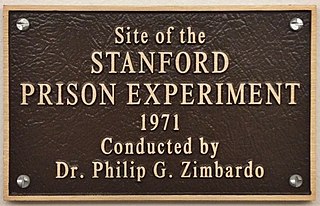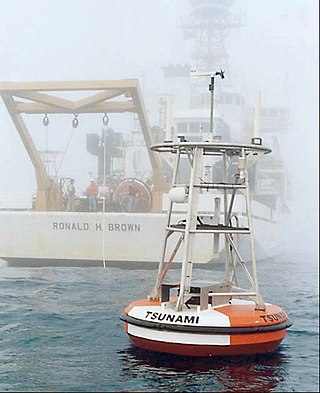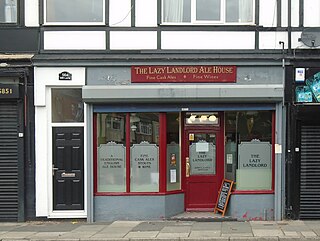Related Research Articles

In academic publishing, a scientific journal is a periodical publication designed to further the progress of science by disseminating new research findings to the scientific community. These journals serve as a platform for researchers, scholars, and scientists to share their latest discoveries, insights, and methodologies across a multitude of scientific disciplines. Unlike professional or trade magazines, scientific journals are characterized by their rigorous peer review process, which aims to ensure the validity, reliability, and quality of the published content. With origins dating back to the 17th century, the publication of scientific journals has evolved significantly, playing a pivotal role in the advancement of scientific knowledge, fostering academic discourse, and facilitating collaboration within the scientific community.

Fishery can mean either the enterprise of raising or harvesting fish and other aquatic life or, more commonly, the site where such enterprise takes place. Commercial fisheries include wild fisheries and fish farms, both in freshwater waterbodies and the oceans. About 500 million people worldwide are economically dependent on fisheries. 171 million tonnes of fish were produced in 2016, but overfishing is an increasing problem, causing declines in some populations.

The Stanford prison experiment (SPE) was a psychological experiment performed during August 1971. It was a two-week simulation of a prison environment that examined the effects of situational variables on participants' reactions and behaviors. Stanford University psychology professor Philip Zimbardo managed the research team who administered the study.

The goal of fisheries management is to produce sustainable biological, environmental and socioeconomic benefits from renewable aquatic resources. Wild fisheries are classified as renewable when the organisms of interest produce an annual biological surplus that with judicious management can be harvested without reducing future productivity. Fishery management employs activities that protect fishery resources so sustainable exploitation is possible, drawing on fisheries science and possibly including the precautionary principle.

A seminar is a form of academic instruction, either at an academic institution or offered by a commercial or professional organization. It has the function of bringing together small groups for recurring meetings, focusing each time on some particular subject, in which everyone present is requested to participate. This is often accomplished through an ongoing Socratic dialogue with a seminar leader or instructor, or through a more formal presentation of research. It is essentially a place where assigned readings are discussed, questions can be raised and debates can be conducted.
An audiobook is a recording of a book or other work being read out loud. A reading of the complete text is described as "unabridged", while readings of shorter versions are abridgements.

Seana McKenna is a Canadian actress primarily associated with stage roles at the Stratford Shakespeare Festival.

The Atlantic States Marine Fisheries Commission (ASMFC) is a commission of U.S. states formed to coordinate and manage fishery resources—including marine (saltwater) fish, shellfish, and anadromous fish —along the Atlantic coast of the United States.
Brain-reading or thought identification uses the responses of multiple voxels in the brain evoked by stimulus then detected by fMRI in order to decode the original stimulus. Advances in research have made this possible by using human neuroimaging to decode a person's conscious experience based on non-invasive measurements of an individual's brain activity. Brain reading studies differ in the type of decoding employed, the target, and the decoding algorithms employed.

Local history is the study of history in a geographically local context, often concentrating on a relatively small local community. It incorporates cultural and social aspects of history. Local history is not merely national history writ small but a study of past events in a given geographical area which is based on a wide variety of documentary evidence and placed in a comparative context that is both regional and national. Historic plaques are one form of documentation of significant occurrences in the past and oral histories are another.
SciVee was a science video sharing website where researchers could upload, view and share science video clips and connect them to scientific literature, posters and slides from 2007 to 2015. The SciVee website is partnered with three groups: The Public Library of Science (PLoS), a publisher of a series of open access (OA) journals who have added content to the website, the National Science Foundation (NSF), who provided seed funding to start the website, and the San Diego Supercomputer Center (SDSC), who houses SciVee's video servers and data for the website. The University of California, San Diego–based service uses Adobe Flash technology to display video combined with documents and imagery via SciVee's patent pending rich web applications or "virtual studio" WYSIWYG to combine, or "synchronize" them with a published scientific article from a scientific journal or poster from a scientific conference poster session. Any video synchronized with a published scientific article is called a "pubcast," while a video that is synchronized with a scientific conference session poster is called a "postercast." Science videos that are not synchronized with a scientific article or poster can be uploaded and linked with supplementary files.

A steam yacht is a class of luxury or commercial yacht with primary or secondary steam propulsion in addition to the sails usually carried by yachts.

Fishing is a prehistoric practice dating back at least 70,000 years. Since the 16th century, fishing vessels have been able to cross oceans in pursuit of fish, and since the 19th century it has been possible to use larger vessels and in some cases process the fish on board. Fish are normally caught in the wild. Techniques for catching fish include hand gathering, spearing, netting, angling and trapping.
IISD Experimental Lakes Area is an internationally unique research station encompassing 58 formerly pristine freshwater lakes in Kenora District, Ontario, Canada. In response to the International Joint Commission (IJC)'s 1965 recommendations related to transboundary pollution, the federal and provincial governments set aside these lakes to study water pollution. During the 1970s and 1980s, David Schindler, who was at that time 'Canada's leading ecologist', conducted a series of innovative, landmark large-scale experiments in ELA on eutrophication that led to the banning of phosphates in detergents. In an unexpected and controversial move that was widely condemned by the scientific community, in 2012 the ELA was de-funded by the Canadian Federal Government. The facility is now managed and operated by the International Institute for Sustainable Development (IISD) and has a mandate to investigate the aquatic effects of a wide variety of stresses on lakes and their catchments. IISD-ELA used the whole ecosystem approach and makes long-term, whole-lake investigations of freshwater focusing on eutrophication.

Knowledge of fish age characteristics is necessary for stock assessments, and to develop management or conservation plans. Size is generally associated with age; however, there are variations in size at any particular age for most fish species making it difficult to estimate one from the other with precision. Therefore, researchers interested in determining a fish age look for structures which increase incrementally with age. The most commonly used techniques involve counting natural growth rings on the scales, otoliths, vertebrae, fin spines, eye lenses, teeth, or bones of the jaw, pectoral girdle, and opercular series. Even reliable aging techniques may vary among species; often, several different bony structures are compared among a population in order to determine the most accurate method.

The NOAA Center for Tsunami Research (NCTR), located at the Pacific Marine Environmental Laboratory (PMEL) in Seattle, Washington, performs research in support of tsunami forecast models to increase the speed and accuracy of operational forecasts and warnings, tsunami inundation models to predict tsunami impacts on coastal communities, and tsunami measurement/detection technology for optimally designed networks of tsunami buoys.

The term micropub was originally devised by the Campaign for Real Ale, in the 1976 edition of its Good Beer Guide, simply as a description for an unusually small but otherwise traditional pub. Examples of pubs described as such in this era included Manchester's Circus Tavern and The Nutshell in Bury St Edmunds. In more recent years, the term came to be redefined much more tightly, as a very small, modern, one-room pub, serving no food other than snacks, and "based upon good ale and lively banter". The original of these newly-defined micropubs is often cited as the Butchers Arms in Herne, Kent.

Binge-watching is the practice of watching entertainment or informational content for a prolonged time span, usually a single television show.

Indica Elizabeth Watson is an English actress. She is best known for her work in television series Who Is Erin Carter?, The Midwich Cuckoos, Sherlock and The Missing, as well as feature films A Boy Called Christmas, Radioactive and The Electrical Life of Louis Wain.

Philip Allen Loring is a human ecologist and author. Loring is currently the Global Director of Human Dimensions Science at The Nature Conservancy. He is known for his work on Arctic food security, natural resource conflict, and regenerative food systems. Loring authored Finding Our Niche: Toward a Restorative Human Ecology (2020), and is the host of multiple academic podcasts.
References
- 1 2 Harrison, Hannah; Loring, Philip. "PubCasts: Audiobook-style readings of peer-reviewed articles increase reach and visibility". Canadian Science Publishing. Retrieved 16 January 2023.
- ↑ Harrison, Hannah (2021). "Managing Many Nets: Possible scenarios and impacts for the expansion of Cook Inlet personal use fisheries". Fisheries Research. 236. doi:10.1016/j.fishres.2020.105811.
- ↑ Harrison, Hannah; Kochalski, Sophia; Arlinghaus, Robert; Aas, Oystein (2019). "'Do you care about the river?' A critical discourse analysis and lessons for management of social conflict over Atlantic salmon (Salmo salar) conservation in the case of voluntary stocking in Wales". People and Nature. 1 (4). doi: 10.1002/pan3.10049 .